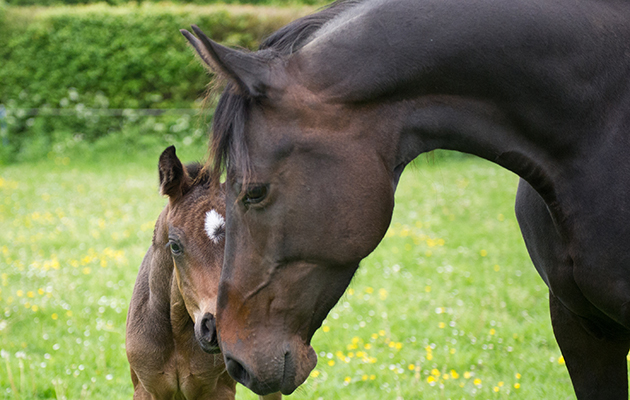Find an equine vet
Learn more about breeding horses
- For the best chance of keeping a clear health status, only allow your mare to mix with other late pregnant mares who have a clean bill of health
- Observe mares in late pregnancy very carefully — at least twice a day. The sooner a possible complication is picked up, the greater chance of avoiding an abortion
- Vaccinate against equine herpes. The vaccine is given at approximately two-month intervals on three occasions during the second half of pregnancy
- Any changes in udder development or signs of lactation should be noted. Running milk from a prematurely enlarged udder is a very bad sign in a pregnant mare
- The hindquarters and perineal (vulval) area of the mare should be checked. If there is any discharge, veterinary assistance should be sought
For the full veterinary feature on abortion, see the current issue of Horse & Hound (21 April, 2011)
Read more about breeding horses
Looking for an equine vet?



